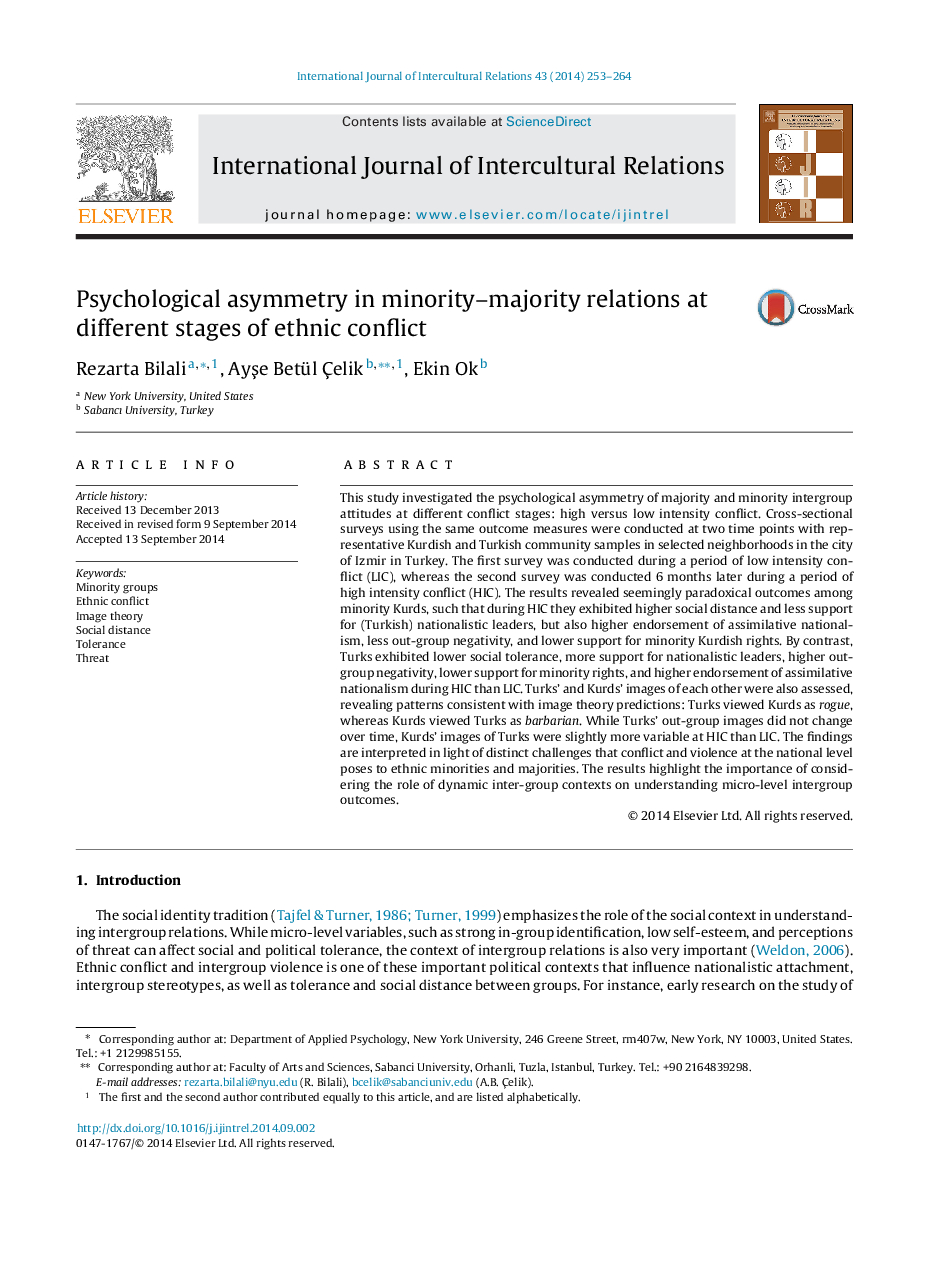| کد مقاله | کد نشریه | سال انتشار | مقاله انگلیسی | نسخه تمام متن |
|---|---|---|---|---|
| 947064 | 1475747 | 2014 | 12 صفحه PDF | دانلود رایگان |
This study investigated the psychological asymmetry of majority and minority intergroup attitudes at different conflict stages: high versus low intensity conflict. Cross-sectional surveys using the same outcome measures were conducted at two time points with representative Kurdish and Turkish community samples in selected neighborhoods in the city of Izmir in Turkey. The first survey was conducted during a period of low intensity conflict (LIC), whereas the second survey was conducted 6 months later during a period of high intensity conflict (HIC). The results revealed seemingly paradoxical outcomes among minority Kurds, such that during HIC they exhibited higher social distance and less support for (Turkish) nationalistic leaders, but also higher endorsement of assimilative nationalism, less out-group negativity, and lower support for minority Kurdish rights. By contrast, Turks exhibited lower social tolerance, more support for nationalistic leaders, higher out-group negativity, lower support for minority rights, and higher endorsement of assimilative nationalism during HIC than LIC. Turks’ and Kurds’ images of each other were also assessed, revealing patterns consistent with image theory predictions: Turks viewed Kurds as rogue, whereas Kurds viewed Turks as barbarian. While Turks’ out-group images did not change over time, Kurds’ images of Turks were slightly more variable at HIC than LIC. The findings are interpreted in light of distinct challenges that conflict and violence at the national level poses to ethnic minorities and majorities. The results highlight the importance of considering the role of dynamic inter-group contexts on understanding micro-level intergroup outcomes.
Journal: International Journal of Intercultural Relations - Volume 43, Part B, November 2014, Pages 253–264
